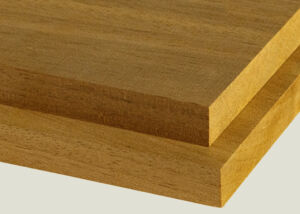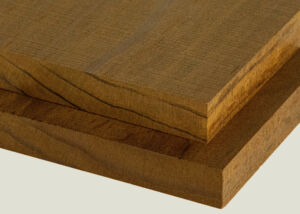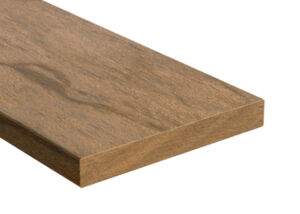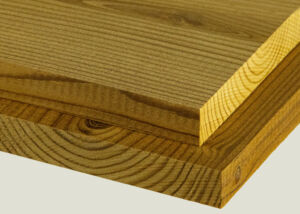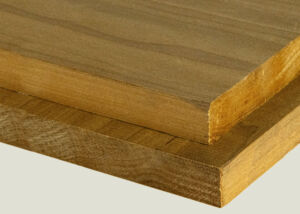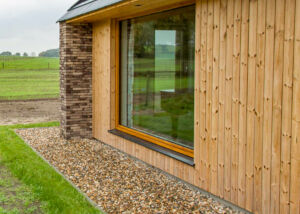Modified wood
Modified wood: durable, stable, and low maintenance. Modified wood is treated softwood that, through thermal modification, bio-based treatment, or oil modification, acquires the appearance and properties of tropical hardwood.
- Eco-Friendly: No chemicals are required, and the wood is often sourced locally, reducing its environmental footprint.
- Durable: Thanks to the treatment, non-durable wood is upgraded to durability class 1 or 2, with a lifespan of up to 30 years.
- Stable and Lightweight: With minimal moisture content, modified wood is extremely stable and easy to handle.
- Versatile: Ideal for cladding, decking, fencing, and joinery.
- Low Maintenance: No additional treatment is needed; if finished, the coating can last up to 15 years.
- Warm Color: The treatment gives the wood a rich, warm tone that weathers evenly for a luxurious look.

